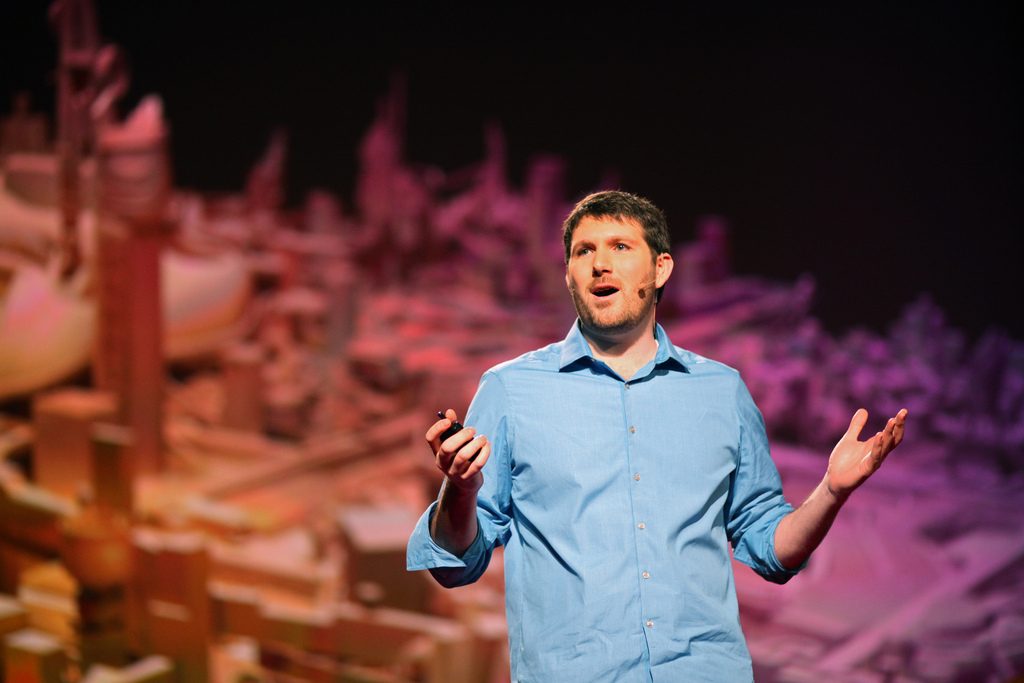Aug 26, 2016
What Viral TED Talks Can Teach Us About Presenting
Learn how these seven speakers captivated their audiences and gave the most popular TED Talks of all time.
Why do some TED Talks rack up millions of views, while others are forgotten? Is it the celebrity of the speaker? Although plenty of celebrities (from Bill Gates to Bono) have contributed talks over the years, very few have made it into the unofficial TED Hall of Fame. So what makes a truly unforgettable TED Talk? To answer this question, we analyzed the seven most popular talks of all time, and what each speaker did to make their speech memorable.
1. Ken Robinson, “Do Schools Kill Creativity?”
In his renowned talk, which has racked up over 38 million views to date, Sir Ken Robinson tackles the controversial topic of education. The subject itself is enough to garner the audience’s interest. After all, the Western educational system is a time-honored tradition, but according to Robinson, it’s one we need to completely rethink. Working in tandem with Robinson’s contentious opinion is his wonderful sense of humor, which turns the talk from remarkable to legendary.
2. Simon Sinek, “How Great Leaders Inspire Action”
As Simon Sinek reminds us in his popular TED Talk, a great leader starts by expressing the “why” rather than the “what.” Not coincidentally, this is the same tactic Sinek uses in his presentation. Rather than beginning with what he wants to talk about, he begins by stating why his topic is important. From the very first moment of his talk, his audience becomes invested in what he’s saying, not just because the “what” is interesting, but because he gave them a reason to feel personally invested in the outcome.
3. Brené Brown, “The Power of Vulnerability”
In a poignant lecture on her research into feelings of vulnerability, Brené Brown opens herself up and allows her audience to connect with her on a personal level, thereby inviting them to connect with her research. A self-described researcher/storyteller, Brown imparts her knowledge through anecdotes that are simultaneously funny and intimate, keeping the audience interested and invested not only in the speech, but in her journey.
4. Mary Roach, “10 Things You Didn’t Know About Orgasm”
While it’s easy to chalk this success to subject matter (the shocking title alone draws viewers), we cannot discount how Mary Roach’s confident, conversational delivery makes this video memorable. Speaking slowly and clearly, making constant eye contact with her audience, and moving around the stage just enough to remain dynamic, Roach’s charming delivery rescues this talk from raunchy voyeurism and makes it into a speech worthy of TED Talk fame.
5. Jill Bolte Taylor, “My Stroke of Insight”
Marrying scientific jargon with personal revelation, Jill Bolte Taylor’s talk was as powerful as it was informative. By mixing her own personal experience with technical examples (bringing out a human brain on stage, for instance), Taylor was able to effectively describe her research while engaging her audience with a highly emotional story. Her crystal-clear delivery didn’t hurt either. Having practiced her speech 200 times before stepping on stage, Taylor knew every moment of her speech down to the tiniest detail.
6. Tony Robbins, “Why We Do What We Do”
As one of the most famous motivational speakers in the world, it’s no surprise that Tony Robbins delivered one of the most noteable TED Talks of all-time. Discussing the “invisible force” that he says drives each and every one of us, Robbins’ dynamic delivery keeps the entire audience on the edge of their seats. He’s not delivering a speech for just any audience: he’s delivering a speech for this one specifically. Standing at the edge of the stage, speaking directly to his listeners (and therefore, directly to the camera), Robbins succeeds in engaging his listeners on such a profound level that they can’t help but feel that his speech is meant for their ears only.
While each of these TED talks is striking and unique, they certainly share particular qualities: engaging and universal subject matter, humor, personal engagement, and confident delivery being just a few. Regardless of whether you’ll be giving a TED Talk in the future, these components are a recipe for success in any presentation, no matter the context.
Ken Sterling is the Chief Marketing Officer at BigSpeak Speakers’ bureau – the leading keynote and business speakers bureau in the world. He holds a Ph.D. from the University of California and an MBA from Babson College. Ken teaches Entrepreneurship, Marketing and Strategy at UC Santa Barbara. He is a serial entrepreneur, keynote speaker, business consultant and sales & marketing expert. For press interviews, contact marketing@bigspeak.com.
This article originally appeared on Business2Community
(Image Credit: Steve Juvetson/Flickr)
Speaker
Tags

 Dr. Ken Sterling, MBA & Esq.
Dr. Ken Sterling, MBA & Esq.